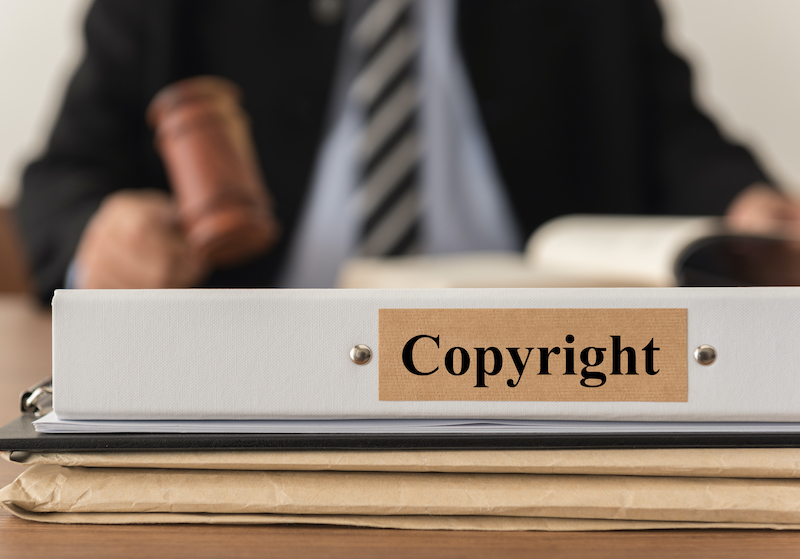When you create something - a book, for example – you own the copyright and have exclusive right as the author to use that work.
When you own a copyrighted work you also have the right to decide if and how anyone else can use it. Giving permission to do so is called granting a license. A license is a written contract giving the user authorization to use the work, usually in exchange for payment.
Licenses can denote the number or uses, the parameters of use and even the length of time until the license expires.
Common use terms in your licensing agreement may include:
– Commercial vs. Non-Commercial Use
– Ability to copy and distribute
– Right to make changes to your original work and
– To what extent you want to be credited in future uses
Exclusive vs. Non-Exclusive Licenses
A copyright license can be nonexclusive or exclusive, also called limited and unlimited. When an exclusive license is given, the licensee, or person receiving authorization, is the only one with the right to use the copyrighted work for the length of the licensing agreement. With a nonexclusive license, other people or companies may also be authorized to use the work simultaneously.
Licensing Fees
Two main types of financial terms included in a licensing agreement are royalties and copyright fees.
– Royalty Fees: Many license agreements include information about royalties, which is when the copyright owner/licensor requires a percentage of the income earned from the licensee’s use of a copyrighted work. For example, an author gives a publisher a license to publish, distribute, and sell her book in exchange for regular royalties, often calculated based on a percent of the total book sales.
Copyright Fees: The price the licensee will pay you to buy a copyright license.
Copyright License Agreement Terms
A copyright license agreement outlines the entire licensing relationship between the copyright owner and the licensee. The license agreement may include the following provisions:
– The Parties
– Effective Dates
– Confidentiality Terms
– Name and Description of Work Being Licensed
– Jurisdiction – US or International
– Exclusivity
– Termination
– Statement Describing Copyright Registration and Ownership
– Subsidiary Licensing Terms (Whether the License can License to Third Parties)
– Use Restrictions
Copyright Exceptions That Don’t Require a License
Though most of your copyrighted creative works will require licensing permission, there are three instances where a reuser may be able to use a work without the creator’s permission.
Fair Use
Fair use is an exception to the exclusive rights held by the copyright owner. It exists in some countries such as the US and UK. If someone’s usage is defined as fair use, then they don’t need to obtain a license. Examples of fair use include:
– Educational purposes, such as teaching and student research
– Making commentary and criticism as part of a news report or published article
– Parody (ridiculing a well-known work by imitating it for comedic purposes)
Fair use applicability is judged on a case-by-case basis. Examples of fair use include:
– Quoting a few lines from a song in a music review
– Summarizing and quoting from an article in a TV news report
– Copying a few paragraphs from an article for use by a teacher or student
Public Domain
Work that falls in the “public domain” basically has no copyright owner. A creator can forfeit their copyright or lose it after death (generally 50 to 70 years after death in most countries) and it can be transferred to the public domain where anyone can use, modify and redistribute it.
Examples of public domain include:
– Work that was created before copyright laws (i.e. the Bible or Shakespeare),
– Work whose copyright protection has expired (i.e. Moby Dick),
– Work that was never copyright protected or its protection was lost.
Open-Source Software
Open-Source Software is a computer program that allows anyone to use, modify, or distribute the software. An example of an open-source program is the web browser Mozilla Firefox.
Contact Counxel Legal Firm
Before engaging in a licensing agreement, as a creator, you must make sure your work is properly registered copyrighted to ensure full protection. Once registered, it is important that your license agreement be detailed and accurate so that all parties have their rights entirely covered and spelled out. To register your creative work or draft a copyright license agreement, you should work with an experienced intellectual property attorney.
Contact us at (480) 744-6621 or at request@counxel.com. Don’t forget to check out the good things that others are saying about the services they received from Timothy Coons on Google.
This article is intended for informational purposes only and does not constitute legal advice for your specific situation. Use of and access to this article does not create an attorney-client relationship between you and Counxel Legal Firm. Please contact request@counxel.com or (480) 744-6621 to request specific information for your situation.
*Conveniently located off the 101 Freeway and the US 60 in the middle of Phoenix, Scottsdale, Tempe, Chandler, Gilbert, Mesa, and Queen Creek!



